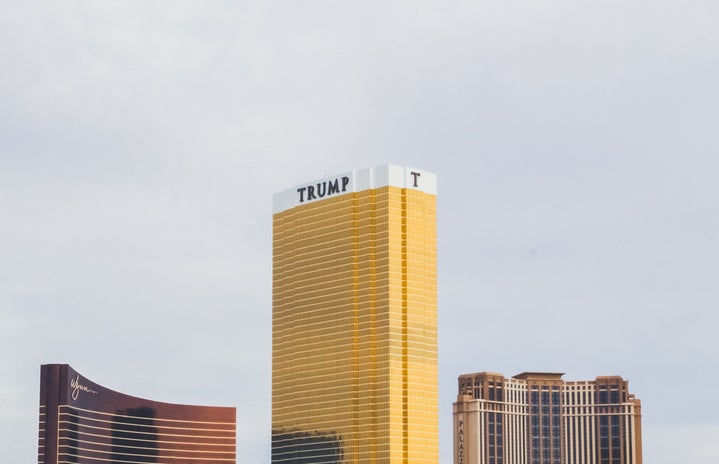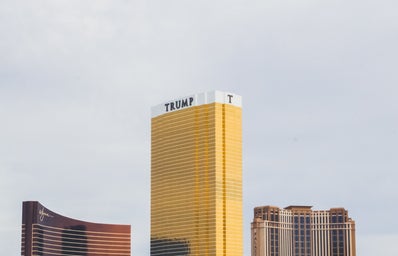The primaries will come to a close in the upcoming months and the nominees seem to be chosen. This has taken somewhat of a backseat in the news lately, however, due to the current outrage against the violence at rallies and protests. In this day and age, we would all like to think that some monster like Trump creates this type of behavior, but perhaps we need to dig a little deeper to find the real root of the problem.
It is naïve to say that violence has never entered the arena of campaign season. Beyond the elections in the late 1800s that were incredibly heated and oftentimes violent, our recent history has only seen the same fate. Think back to the 1968 election. Chicago, the host of the Democratic Convention that year, broke out into historical riots. We oftentimes shrug this matter off due to the racial turmoil and political movements in the U.S. at the time that already had this tendency for violence. Are we not in a similar dilemma in today’s society? The racial protests, Black Lives Matter, hate crimes against Muslims; are these not all heated, oftentimes violent topics? Are we not fighting for social justice similar to the late ’60s? I won’t pretend that today’s movement is by any stretch another civil rights movement, but it is an important issue that needs to be recognized when you hear about the fights and protestors at rallies.
President Barack Obama lamented a “vulgar and divisive” presidential campaign in a recent speech, saying that GOP presidential candidates were setting bad examples for children and tarnishing the United States’ reputation abroad.
“In America, there is no law that says we have to be nice to each other, or courteous, or treat each other with respect. But there are norms. There are customs. There are values that our parents taught us and that we try to teach to our children to try to treat others the way we want to be treated,” Obama said during a St. Patrick’s Day luncheon on Capitol Hill.
No one can argue with the president’s remarks, and still violence continues with no indicator that it will let up.
In the same speech, Obama, making a very obvious reference to GOP front-runner Donald Trump, described campaign rally scenarios that pit protesters against supporters that have led to “actual violence.”
You see this violence on the news: a man getting punched in the face by a Trump supporter, a Chicago rally being canceled due to protestor unrest. You don’t just see it, either. Whether Hillary tells thousands of her supporters that Trump incites this behavior, or Bernie comments that Trump is making America hate, you hear about it. Sure, there are plenty of people who do not like Trump. He’s proven to be sexist, racist, arrogant and insulting and yet our country has basically chosen him as the nominee. Doesn’t that say a little more about this country than Trump allowing his supporters to be violent?
Donald Trump is one man, one with an incredible responsibility as a public political figure, and almost the Republican presidential nominee, but what about the responsibility of the people? Trump did not tell that man to punch the protestor in the face, and I’m sure that same man would have done it with our without Trump screaming about how he hates his protestors.
Trump is one of millions of Americans who are insulting, racist, sexist and ignorant, but Trump is the prefect poster child for this problem because we get to point the finger at one person. It isn’t that simple, though. When we point at him, we point the finger at us, at our country.
Trump said Monday, “there’s no violence, nobody’s been hurt” at his rallies, which have a number of high-profile incidents of violence in the past weeks. “First of all let’s not even use the word violence, there’s very little disruption generally speaking. It’s a function of the press, the press likes to say what the press likes to say,” Trump told CNN.
If Donald Trump is guilty of anything beside the horrible personal qualities I listed before, it’s being aware. He knows that these social movements are a huge topic for not only those who are oppressed, but counterparts of the movement. He is part of the enormous group of angry American citizens who look at the country and barely recognize it. It is not white America anymore. It is not the greatest country in the world. It is not in possession of the greatest economy. Many Americans miss and want this. Trump caters to their anger and frustration and incites them to not be ashamed of it as he is.
Trump has repeated several times throughout this election season that he does not condone violence at his events. “No, I don’t like that. And we don’t condone that. And I’ve said that numerous times,” Trump said. It is hard to believe him, however, when we see the violence concentrate around him. Beyond that, his cries of encouragement to force protestors out by force have made this PR job too hard for even his staff. It doesn’t matter though, because even if Trump stopped his hate speech and constant rants of violence, perhaps the damage has already been done.
It’s been nearly fifty years since the 1968 election and we are scared for the fate of the United States once again. That campaign, considered the most violent in recent history, truly rocked the American people. The assassinations, the corruption, the war; the American people survived and pushed through, just as we will push through now.
Who is to blame? Well the answer to that question is simple. Not one individual—everyone.


